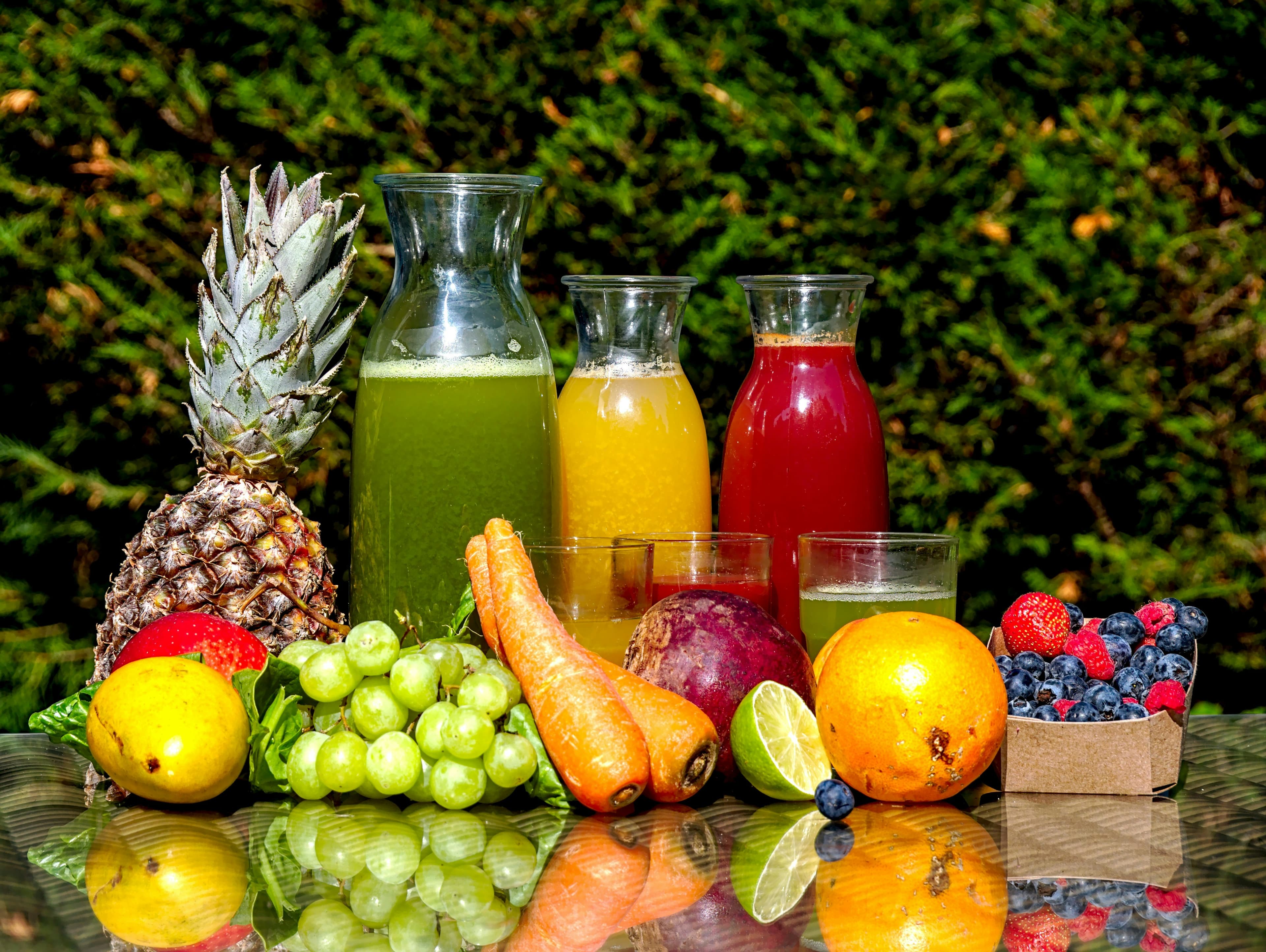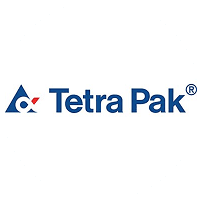
Cut carbon emissions by pasteurizing only the concentrate
 Tial
Tial Tetra Pak
Tetra PakSummary
Pasteurize only the concentrate, rather than the entire product, significantly reduces water and energy consumption during both production and cleaning.
Context
Tropical (Tial), located in Visconde de Rio Branco in Brazil, aimed to expand its juice production capacity while embracing more sustainable practices and enhancing operational efficiency.
Through a strategic partnership with its service provider, Tropical is leveraging NPC technology to accelerate its decarbonization journey.
This collaboration is built on a foundation of technological innovation, mutual trust, and a shared commitment to sustainability. More than a packaging supplier, the service provider has been a key partner in developing industrial solutions that align with Tropical’s strategic pillars: sustainability, healthiness, and operational efficiency.
Within this context, the company adopted the NPC (Non-Preheated Concentrate) technology – an aseptic pasteurization system developed by the service provider. This solution allows for the elimination of the preheating stage for fruit pulp, resulting in up to 65% reduction in steam consumption and approximately 50% less water usage during the thermal process. In addition to improving industrial efficiency, this shift contributes to a significant reduction in greenhouse gas (GHG) emissions associated with the company's production.
Solution
The traditional approach to producing juice is to blend all ingredients with water and then pasteurise the product to deactivate harmful microorganisms. Pasteurisation (heat treatment) is the most energy-intensive process step. The solution chosen by Tial was to pasteurise only the juice concentrate instead of the entire product.
Tropical has built a solid and strategic partnership with Tetra Pak, grounded in technological innovation, mutual trust, and a shared commitment to sustainability. More than a packaging supplier, Tetra Pak has been a key partner in developing industrial solutions that align with Tial’s strategic pillars: sustainability, healthiness, and operational efficiency.
Within this context, Tial adopted the NPC (Non-Preheated Concentrate) technology, an innovative aseptic pasteurization system developed by Tetra Pak. This solution allows Tial to eliminate the preheating stage for fruit pulp, resulting in up to 65% reduction in steam consumption and approximately 50% less water usage during the thermal process. Beyond industrial efficiency, this shift contributes to a significant reduction in greenhouse gas (GHG) emissions associated with production.
The new solution separates the process into two streams: a small volume of concentrate and a larger volume of water. The concentrate undergoes standard pasteurisation, while the water is purified using ultraviolet (UV) light treatment and filtration. These two streams are then blended aseptically, and the final product is ready. This approach significantly reduces energy and water usage, allows for smaller equipment, and eliminates the need for post-pasteurisation cooling. (2)
On the packaging front, we’ve also made measurable progress. Tropical was one of the first companies in Brazil to adopt the new generation of low-carbon Tetra Pak cartons. In 2024, packaging alone accounted for 46.85% of Tropical’s total GHG emissions, primarily due to the upstream lifecycle of materials. Through this transition, Tial achieved a 11% decrease in packaging-related emissions per liter of product. This reflects strategic focus on Scope 3 emission hotspots, innovation, and supplier engagement.
Adoption of the NPC technology is part of Tropical’s broader climate strategy. The company conducts annual GHG inventories across Scopes 1, 2, and 3, has adopted renewable energy in its facilities, and is implementing mitigation plans guided by internationally recognised frameworks. The overarching goal: to reduce the carbon intensity of its operations and value chain, acting with responsibility and foresight in response to global climate challenges.
The partnership with Tetra Pak reinforces Tial’s belief that sustainability and innovation go hand in hand. Technologies like NPC and packaging with a reduced carbon footprint are concrete examples of how Tial turns commitments into action, delivering not only environmental benefits, but also efficiency and product integrity.

Overview of juice processing using the new solution (2)
Impact
Sustainability impact
Climate
Scope 2 (Tial): 65% reduction in steam consumption during production vs traditional juice production solutions (1)
Business impact
Benefits
Energy savings: By heating less product during pasteurization and eliminating the need to cool the product after pasteurization, the solution significantly reduces energy consumption – achieving up to a 65% reduction in steam consumption during production. (1)
Water savings: The use of a smaller pasteurizer reduces the volume of water required during the Cleaning-In-Place (CIP) process. With less water needed for cleaning, overall water consumption during production is significantly lowered – resulting in water savings of at least 50%. This is especially valuable in the region where Tial is located, as water availability is limited during the hot season. (1)
Sizing of equipment: The equipment needed – such as pumps, pipes, and the pasteurizer – can be made smaller as less volume of product is handled at the pasteurizer.
Raw Material Efficiency: Compared to traditional batch production, this solution enables more precise dosing, reducing the need for excess raw materials to meet quality standards. Overdosing of costly juice concentrate is reduced by up to 60%, allowing for greater product yield using the same amount of ingredients. (1)
Enhanced processing capacity: The solution can process up to 37,000 liters of beverage per hour. With the addition of more production lines at the Tial site, capacity can be increased by up to 67%. (1)
Waste Reduction: During product changeovers and at the start and end of production runs, water-product mix phases typically result in losses. The new solution accurately redirects these phases to the aseptic blending tank, converting them into product and minimizing waste. This results in a 92% reduction in product losses compared to the conventional pasteurization line – approximately 70,000 liters of beverage are saved annually. (1)
Operational efficiency: The new solution streamlines the formulation process by reducing the number of tanks required from 3 or 4 to just one. This simplification allows operators to focus more effectively on their core tasks, lowering production-related stress and significantly reducing the risk of human error. (1)

A summary of savings achieved from implementing the solution. (1)
Costs
Using the new solution compared to the traditional juice processing line (1):
Reduced operating costs by 67% (for instance, by reducing water used by 50%)
Increased total investment cost by only 10%
Has a payback of less than 1 year, given the savings on operational costs
Implementation
Typical business profile
This solution is relevant for plant managers, quality managers, technical managers, and researchers in the beverage processing industry, working with juices, nectars, still drinks, and teas.
Approach
A project team was involved in tailoring the solution to meet the needs of Tial. This project team consisted of stakeholders from both Tial and the solution provider.
To successfully transition from a traditional pasteurisation system to the innovative NPC (Non-Preheated Concentrate) technology, Tropical followed a structured implementation approach involving infrastructure upgrades and validation:
1. Infrastructure Assessment and Planning
Tropical began by evaluating its existing production infrastructure to determine the requirements for integrating the NPC system. This included assessing space, utility connections, and compatibility with existing equipment.
2. Investment in New Infrastructure
Based on the assessment, the company invested in upgrading its facilities to accommodate the NPC concept line.
3. Validation of Theoretical Performance
During pilot testing, Tropical conducted validation tests, comparing internal measurements against the theoretical values provided by the service provider. This ensured the technology delivered on its promised efficiency and sustainability benefits.
4. Full-Scale Implementation
With validated results and optimised settings, the NPC technology was used across the production line. Staff were trained on the new system, and operational protocols were updated accordingly.
5. Continuous Monitoring and Reporting
Post-implementation, Tropical continued to track ongoing performance, resource savings, and environmental impact. These insights feed into the company’s annual GHG inventory and broader climate strategy.
Stakeholders involved
Project Leads: Chief Operations Officer, Tial Production Supervisor, Tial
Company functions: Production Maintenance Quality Engineering Sustainability
Service providers: Tetra Pak
Key parameters to consider
Initiative maturity: Tial was the first customer to implement the solution at an industrial level. Before that, it had been pilot-tested and verified through 8000 juice packages. UV treatment and filtration are well-established water treatment technologies. (2)
Processing capacity: The solution can process up to 37,000 litres per hour. (1)
Durability: The installed equipment is designed for long-term performance, with an expected operational lifetime of up to 20 years.
Implementation Timeline: The implementation of the NPC (New Pasteurization Concept) followed a structured and phased approach, integrating negotiation, technical planning, infrastructure works, equipment acquisition and installation, as well as testing and operational validation. It reflects a high level of planning, technical rigor, and cross-functional collaboration involved in the project. The timeline unfolded as follows:
Phase 1: Introduction and Initial Assessment
October 2022 – Technical visit to the service provider’s office in Modena, Italy, where Tropical was introduced to the new pasteurisation technology and formally proposed the execution of a field test at its industrial site in Brazil.
March 2023 – On-site visit from the service provider’s global project lead to assess installation conditions and align on preliminary technical aspects.
Phase 2: Technical Feasibility and Agreement
March to June 2023 – Technical analysis phase including performance simulations, capacity calculations, and installation engineering.
June 2023 – Negotiations concluded and an agreement was formalised for the execution of the field test.
Phase 3: Project Planning
November 2023 – Start of the executive project detailing phase, including flowchart development and definition of mechanical, electrical, and civil scopes.
December 2023 to February 2024 – Strategic procurement of components (pumps, pipes, valves, fittings) and hiring of specialised assembly teams.
Phase 4: Infrastructure and Installation
December 2023 to May 2024 – Execution of civil works and structural adaptations (foundation, roof elevation, floor reinforcements).
January to May 2024 – Electrical installations and interconnection of equipment to the existing industrial infrastructure.
March to June 2024 – Mechanical assembly of the NPC system and skids, including lifting, positioning and connection of utility and product lines.
Phase 5: Commissioning and Start-up
July 8 to 29, 2024 – Final sprint focused on technical adjustments, installation corrections, parameter settings, pressure tests and issue closure.
July to August 2024 – Commissioning with water and product testing.
September 2024 – Execution of the aseptic test.
January 2025 – Start of commercial operation of the new line, under the service provider’s technical supervision and performance validation.
Implementation and operations tips
Aligned understanding between implementer and solution provider of how technology solutions can deliver resource efficiency, resulting in cost savings and decarbonisation. Clear communication: Strong communication between the company and the service provider should be established to ensure alignment on project scope, expectations, and deliverables.
Comprehensive training: Training from the service provider to the operations team should be provided to ensure a deep understanding of the new process. Given the novelty of the NPC system, hands-on learning and technical support were critical.
Result validation: Validation of the outcomes to confirm that the implemented solution meets all required specifications and performance standards.
Challenges:
Infrastructure Readiness: One of the key challenges was adapting existing infrastructure to accommodate the new NPC concept line. This required significant modifications to the facility layout and utilities, highlighting the importance of early planning and investment in infrastructure upgrades.
Cross-Cultural Collaboration: The implementation involved technical consultants from India and Sweden working closely with operators in Brazil, which occasionally led to language and cultural challenges. However, these differences also created a valuable opportunity for cross-cultural exchange, fostering teamwork and mutual learning. For the operators, it was a valuable opportunity to develop new skills and engage directly with international experts in advanced processing technologies.